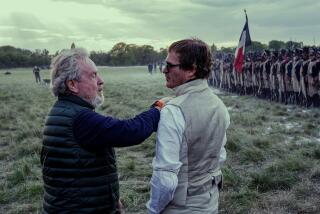Richard S. Scott; Argued Right-to-Die Cases
- Share via
Richard Stanley Scott, who began his career as an emergency room physician fighting to save lives but then became an attorney helping terminally ill clients die, has taken his life.
His wife, Linda, said Wednesday from her home in Portland, Ore., that he died Aug. 6 in Los Angeles of a self-inflicted gunshot wound.
She said that her 54-year-old husband had battled depression most of his life and “some of the events in his practice (of dealing with the critically ill) had a strong bearing on his feelings.”
Mrs. Scott has been living in Portland since their separation six years ago.
As doctor and lawyer, Scott was in the news through much of the 1980s, particularly in the celebrated case of Elizabeth Bouvia, a quadriplegic who fought unsuccessfully in court for the right to starve herself to death.
Although she remains alive, others he represented won their legal battle to die.
“I have no crusade to get people dead,” Scott said in a 1985 interview. “I’m on a crusade to get hospitals to respect a patient’s wish to be in charge.”
Griffith D. Thomas, a colleague on the Bouvia and other right-to-die cases and a friend since the two men went to UCLA Law School together, credited Scott with “completely confirming the patient’s right in making health-care decisions . . . cases that now have extended to other jurisdictions across the country.”
Scott became interested in the law when he and his wife were involved in a legal dispute over religious preferences that surfaced when they sought to adopt a 16-month-old Vietnamese orphan.
Scott had graduated from medical school at the University of Oregon in 1963 and came to Los Angeles in 1966, where he began producing medical educational films. He wrote scripts for the American Cancer Society, the American Heart Assn. and the American Medical Assn. and produced films through UCLA.
In 1968 he produced and directed the Emmy-award winning “POT-pourri, the Many Views of Marijuana” for KCET. He later formed his own film production company with his wife.
While attending law school, Scott worked on the staff of the Department of Emergency Medicine at County-USC Medical Center, where Bouvia remains a patient. There he helped organize the communication systems between the paramedics, fire departments and ambulance services.
Retired Los Angeles Fire Chief Kenneth Long, who first met Scott in emergency conditions during the 1971 Sylmar earthquake, credited the doctor-lawyer with helping train additional paramedics when the county realized the need to expand those forces in the 1970s.
“He was a dear friend and a fine doctor,” Long said from his retirement home in Pebble Beach.
Throughout his career, Scott walked a fine line between life and death, locating homes with American families for Southeast Asian orphans on the one hand while on the other he helped found the Hemlock Society, which advocates voluntary euthanasia.
In 1986, during a lengthy interview with The Times when right-to-die cases were becoming common in courtrooms, Scott looked back on his student years, when he thought he might become a neurosurgeon but was put off by the additional training.
He also was tugged, he said by “a longstanding interest in how society solves its problems, which is more interesting to me than how the body makes a nerve cell out of a carrot.”
Besides his wife he is survived by a daughter, a son, two brothers and two grandchildren.
More to Read
Sign up for Essential California
The most important California stories and recommendations in your inbox every morning.
You may occasionally receive promotional content from the Los Angeles Times.













